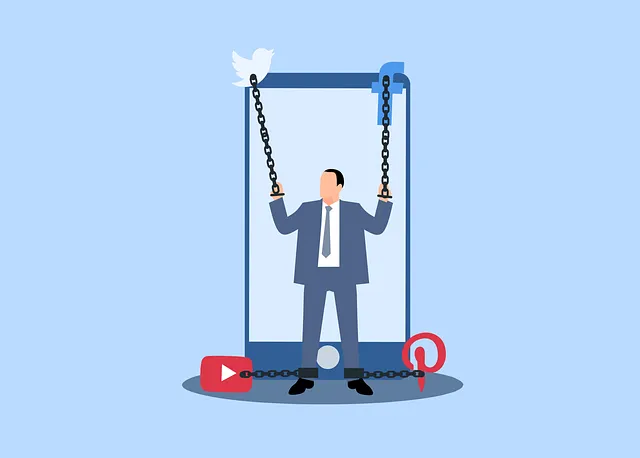Community outreach programs, like those offered by Wheat Ridge Kaiser Permanente, utilizing their psychiatry phone number, significantly improve mental health accessibility for underserved populations by building trust through cultural understanding and tailored services. Strategic partnerships, evidence-based practices, empathetic communication, and advocacy groups enhance program effectiveness. The Wheat Ridge psychiatric phone line exemplifies telehealth's role in overcoming geographical barriers to mental healthcare. Robust evaluation methods ensure these programs' success and inform future interventions, ultimately enhancing community well-being.
Community outreach programs play a vital role in connecting mental health services with those who need them most. This article explores strategic implementation, from understanding the community’s unique needs to designing effective initiatives and engaging key partnerships. We delve into successful cases like the Wheat Ridge Kaiser Permanente Psychiatry Phone Number, showcasing how telehealth solutions enhance accessibility. Learn evaluation techniques to measure impact and foster continuous improvement in outreach programs, ensuring long-term positive change for vulnerable populations.
- Understanding Community Outreach: Why It Matters and Who It Serves
- Designing Effective Programs: Strategies for Mental Health Initiatives
- Engaging the Community: Building Partnerships and Overcoming Barriers
- Implementing Telehealth Solutions: Wheat Ridge Kaiser Permanente Psychiatry Phone Number as a Case Study
- Measuring Success and Long-Term Impact: Evaluation Techniques for Outreach Programs
Understanding Community Outreach: Why It Matters and Who It Serves

Community outreach programs are essential initiatives that bridge the gap between healthcare services and underserved populations. Understanding the needs and cultural nuances of specific communities is pivotal to designing effective Mental Health Education Programs. For instance, Wheat Ridge Kaiser Permanente’s psychiatry phone number can serve as a valuable resource for those in need, but its impact is enhanced when coupled with community outreach. This strategy ensures that mental health guidance, such as Crisis Intervention, reaches individuals who might otherwise face barriers to accessing care.
By engaging directly with communities, organizations like Wheat Ridge Kaiser Permanente can foster trust and promote Mindfulness Meditation practices tailored to diverse cultural backgrounds. Such personalized approaches not only improve mental well-being but also encourage early intervention and reduce the stigma associated with seeking psychiatric support. This holistic approach benefits individuals, families, and the broader community by creating a more inclusive and supportive environment for everyone’s mental health journey.
Designing Effective Programs: Strategies for Mental Health Initiatives

When designing mental health initiatives for community outreach programs, a structured and empathetic approach is key. Involve local stakeholders, including healthcare providers, community leaders, and individuals with lived experiences, to ensure the program aligns with the unique needs and cultural context of the target population. Incorporate evidence-based practices and leverage resources like the Wheat Ridge Kaiser Permanente psychiatry phone number to connect individuals with professional support.
Effective communication strategies, coupled with healthcare provider cultural competency training, can enhance trust and engagement. Train facilitators in conflict resolution techniques to navigate sensitive discussions and ensure a safe, inclusive environment. By fostering open dialogue and addressing cultural barriers, these initiatives have the potential to significantly improve mental health outcomes within the community.
Engaging the Community: Building Partnerships and Overcoming Barriers

Engaging a community requires strategic partnerships and an understanding of local needs. For instance, Wheat Ridge Kaiser Permanente psychiatry services can collaborate with community-based organizations, schools, and faith groups to reach diverse populations. Building strong relationships ensures that mental health resources are tailored to specific cultural contexts, fostering trust and accessibility.
Overcoming barriers to engagement is crucial. Healthcare providers must be culturally competent, addressing language, cultural, and socioeconomic disparities. Training in cultural competency enhances the delivery of anxiety relief services and promotes understanding among diverse communities. Moreover, advocacy groups can influence mental health policy analysis, ensuring that initiatives like these are integrated into broader healthcare systems, benefiting all residents, including those who may be hesitant to engage with psychiatric services due to stigma or past experiences.
Implementing Telehealth Solutions: Wheat Ridge Kaiser Permanente Psychiatry Phone Number as a Case Study

Implementing Telehealth Solutions: Wheat Ridge Kaiser Permanente Psychiatry Phone Number as a Case Study
In today’s digital era, telehealth solutions have revolutionized mental health services delivery, particularly in reaching underserved communities. The Wheat Ridge Kaiser Permanente psychiatry phone number serves as an excellent case study for integrating these innovative tools. By offering remote psychiatric consultations and therapy sessions, this program addresses the challenges of limited access to mental health professionals. It facilitates increased public awareness campaigns development, ensuring that individuals across diverse geographical locations can receive critical care without the constraints of physical distance.
This approach not only enhances stress management but also fosters a more inclusive environment for seeking mental health support. Moreover, effective risk management planning for mental health professionals is integral to the success of such initiatives. Ensuring patient confidentiality and data security while utilizing telehealth platforms is paramount, allowing healthcare providers to focus on delivering quality services without administrative hurdles.
Measuring Success and Long-Term Impact: Evaluation Techniques for Outreach Programs

Measuring the success and long-term impact of community outreach programs is essential for gauging their effectiveness and justifying continued investment. Evaluation techniques play a pivotal role in understanding the reach, engagement, and sustainability of these initiatives. Organizations like Wheat Ridge Kaiser Permanente Psychiatry can lead the way by employing robust methods to assess outcomes. Phone surveys, focus groups, and data analytics are powerful tools to gauge public awareness campaigns’ development and track changes in mental health literacy over time.
By analyzing participation rates, program satisfaction, and behavioral shifts, such as increased help-seeking for depression prevention or burnout reduction, practitioners can identify what works best. These insights enable continuous improvement, ensuring resources are allocated efficiently. Moreover, evaluating outreach programs contributes to a broader understanding of community needs, fostering more targeted interventions and ultimately enhancing the overall well-being of the population served, particularly in addressing pressing issues like mental health concerns.
Community outreach programs, as exemplified by the successful integration of telehealth solutions at Wheat Ridge Kaiser Permanente Psychiatry, hold immense potential to improve mental health outcomes. By understanding the community’s needs, designing targeted initiatives, engaging partners, and employing innovative technologies, organizations can overcome barriers and create lasting impact. Measuring success through comprehensive evaluation techniques ensures these programs remain effective and adaptable, ultimately fostering healthier communities.






